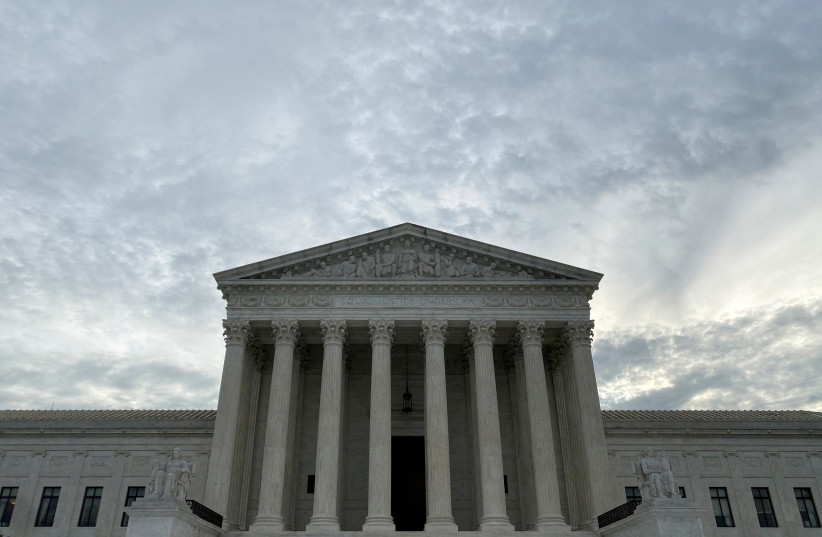The US Supreme court will convene to decide if boycotting is free speech on Friday over a case set off by anti-BDS (Boycott, Divestment and Sanctions) laws.
The court's decision on the case, Arkansas Times v Waldrip, will likely be published the following week.
In 2018, the University of Arkansas Pulaski Technical College, which usually runs ads with the Arkansas Times, demanded that the paper sign an agreement conforming with Act 710. The 2017 state law prevents state bodies from contracting or investing with those engaging in the boycott of Israel.
The American Civil Liberties Union Foundation filed a lawsuit on behalf of the Times in 2018. In 2019 the case was dismissed by the district court. The ACLU appealed this decision with the 8th district. After the three-judge appeals court rejected the petition, the full court rejected it nine-one. The ACLU pushed the appeal to the US Supreme Court.
The petition challenges "whether the First Amendment permits States to selectively penalize specific consumer boycotts because of the message they express."

The ACLU cites as proof a 40-year-old case, NAACP v Claiborne Hardware, in which black civil rights activists rallied and boycotted businesses to push them to comply with demands for racial equality. Business owners sued a principal organizer of the protests and boycott, the National Association for the Advancement of Colored People (NAACP), for lost custom.
The petitioners argue that deciding in their favor would affirm NAACP v Claiborne Hardware, in which the court ruled against Claiborne Hardware. However, the state of Arkansas has noted that the case had focused on the conduct and protesting of those initiating the boycott.
ACLU statements
The ACLU has said that there is a long-standing historical precedent for the need for the tool of boycotting, highlighting the Montgomery bus boycott over racial segregation in 1950s Alabama.
However, Arkansas has referred to a 2022 working paper by Josh Halpern and Lavi Ben-Dor, which indicates that America’s history and tradition are peppered with politically motivated boycotts. The paper asserts that state actors have consistently regulated boycotts rigorously, both compelling them or banning them at times.
The ACLU petition has warned that more states have adopted anti-BDS laws and other anti-boycott laws such as those penalizing the boycott of the fossil fuel or firearms industry. New bills could deny state contracts to boycotters of companies that do not meet standards for diversity quotas, offer reproductive health or gender-affirming care, said the petition.
"The only plausible explanation for Act 710’s exclusive focus on boycotts of Israel is the government’s singular distaste for the message those boycotts express," noted the ACLU petition.
The state argued that it was only seeking "to eliminate economic discrimination against Israelis and the people who do business with them. Arkansas agrees that refusing to do business with Israel and Israelis solely because they are Israeli is an 'unsound business practice' grounded in 'national origin' discrimination."
The responding briefs state that Act 710 doesn't prevent criticism of Israel or the law, or advocating for a boycott, it merely restricts state business.
"Economic conduct isn’t expression, and explaining that it had a political motivation doesn’t make it expression," reads the state brief. "That’s why states can, and often do, ban refusals to do business solely because of an individual’s race, national origin, religious affiliation, or other status — even if they’re accompanied by speech."
Both sides have gathered significant support. The American Jewish Committee, Christians United For Israel, Stand With Us, as well as Arizona and other states with anti-BDS or other boycott laws have sided with Arkansas.
The ACLU and the Arkansas Times have seen Jewish Voice for Peace, J Street, the Council on American Islamic Relations, and Palestine Legal support the petition. Palestine Legal is currently conducting simultaneous legal efforts on similar anti-BDS laws.
